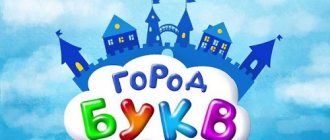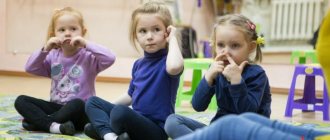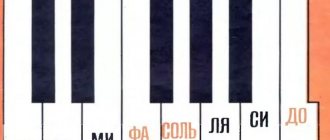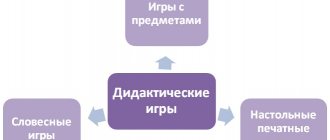General recommendations for classes
Almost all experts adhere to the following advice:
All classes should be held in a playful way. Let it be a pleasure, not a workout. While practicing, we follow the sequence of stages. There is no need to count on instant results: everything will come gradually. The younger the child, the shorter the lesson time
At 2-3 years old, 10-15 minutes will be enough. If the baby is in a bad mood or tired, it is better to postpone the exercises. If interest is lost, we immediately switch our attention to another activity. To get rid of uniformity, we use various toys, pictures and poems. Take breaks for physical exercise or a joint search for something interesting to do. We praise the child even for minimal successes: even if he didn’t succeed, he tried. The child should feel confident in his own abilities
We avoid criticism and negative marks. This can completely ruin your motivation. We return to the material we have covered in everyday life. For example, you can practice putting accents while you are shopping, and read the necessary words for this on the shelves with goods. When preparing lunch, ask your child to find all the foods in the kitchen that start with a certain letter.
The number of preschool children with speech development disorders has been growing recently. But regular classes will definitely bear fruit in the form of correct speech and competent writing. Don't be shy about asking speech therapists for help.
How to conduct classes at home correctly
Moms and dads can help children learn new words, master the correct grammatical structure of speech, and improve their sound culture. There are several important rules that must be followed during home speech therapy sessions.
Lessons should be held regularly, preferably every day, and certainly in a friendly, calm environment. It is worth presenting the next exercise in the form of a game, try to captivate the child with a developmental task. You can turn mandatory training into a contest or competition to see who can complete the task better, faster, and more carefully. Support your child, praise him not only for a good result, but also for his efforts. Avoid criticism and harsh remarks.
Articulation gymnastics must be carried out with a stable table mirror, so the child can see the result of his efforts. It is useful to use pictures of all the tongue exercises. Special aids for independent study with a child - necessary and obligatory help for parents
For example, a large speech therapy textbook with tasks and exercises for the little ones is a complete collection of necessary exercises, supplemented by detailed guidelines for implementation and illustrations. Use rhymes, tongue twisters, speech therapy songs for children for classes - such material helps to achieve results faster, develops not only the speech of preschoolers, but also their attention and memory. Try to speak clearly and correctly, using all the richness of the expressive means of language. Show your son or daughter an example of an attentive and caring attitude towards him
Talk on different topics, read poems by heart, play speech games.
At home, you can organize both individual and group speech therapy sessions for children 4-5 years old, both options give excellent results.
Phonemic hearing
The ability to distinguish phonemes without visualizing letters and determining the sound composition of a word is called phonemic awareness. This skill underlies children's learning to read and write.
When this skill is not developed, children are delayed in speech development because they do not hear their own articulation errors:
- confuses consonants paired by deafness-voicedness, deafness-voicedness;
- makes numerous grammatical errors in speech;
- skips syllables in words;
- does not use prepositions or confuses similar pairs (over-on, in-in);
- cannot correctly express a thought, incorrectly using consonant words (luk-luk, tom-dom).
As a result, by school age the number of problems increases. Children with undeveloped phonemic awareness have the following learning problems:
- dysgraphia;
- dyslexia;
- low reading and writing speed.
- errors in searching for words with the same root, phonetic analysis, and test forms for the last consonant.
To avoid difficulties at school age, it is important to promptly notice the underdevelopment of phonemic hearing and provide speech therapy assistance to a preschooler or schoolchild. Games occupy the main place in correctional work with children on the development of speech hearing.
There are a great many of them. They can be carried out not only by speech therapists, defectologists, kindergarten teachers, but also by parents.
Speech characteristics of children 4-5 years old
For preschoolers, this time is a period of active vocabulary growth (by the age of 5, its volume normally reaches 3 thousand words). Children of this age begin to acquire a sense of language, handle their native speech more confidently, and engage in word creation. The grammatical structure continues to level out too.
A child of four or five years old not only begins to speak more and more freely, he also uses more and more complex sentences than before. The ability to compose a short story not only about what the child saw personally, but also without relying on his own direct experience, gradually develops. Such stories are still emotional and often have a broken logical structure, but they are quite voluminous and meaningful.
The level of phonetic perception of speech by this age also becomes significantly better. The child has the opportunity to determine the presence of a particular sound in a word and select words for a specific sound. He becomes able to perceive the syllabic rhythm of the structure of a word.
We can say that at the age of four, children begin the most active period in speech development, which allows them to acquire communicative capabilities comparable to the level of adults. Of course, it is rare that a child goes through this path without difficulties; speech disorders at this stage are most common.
Types of speech disorders in older preschoolers
There are three main types of disorders and speech underdevelopment:
- phonetic;
- phonetic-phonemic;
- general.
In practice, this means that children have difficulty recognizing, distinguishing and pronouncing the sounds of their native language. These three types of disorders can occur separately or in combination.
Normally, by this stage of development, natural age-related difficulties with the pronunciation of individual sounds or their groups should already be a thing of the past. The stage of mastering sound pronunciation is completed, children stop skipping and softening consonants in speech. At 4 years old, all hissing sounds should appear, and by 5 years old, you can expect a confident L and R sound. But in older preschoolers, articulation disorders are very common. These may be defects in the pronunciation of hissing, whistling, sonorant sounds. Almost all children have to perform speech therapy exercises on the letter and sound r; many manage to “growl” only after special training.
It is also worth paying attention to lexical and grammatical problems, which manifest themselves in the difficulties of actively using speech as a means of communication. Children with such disorders have difficulty composing questions and descriptions, and cannot use all the means of their native language to express thoughts.
They do not know how to construct sentences correctly, use endings and prepositions incorrectly, and make mistakes when forming words. Speech therapy help in this case is necessary, but parents can also help the child speak better (of course, after consultation with a specialist).
What it is?
Phonemic hearing is the ability to catch individual elements of native speech - phonemes (sounds). Such hearing allows the child to recognize familiar phonemes from the general sound of others, compare them, repeat them, that is, reproduce sounds. Phonemic hearing is a unique natural gift, a gift from nature to man. It effectively complements physiological hearing (the ability to detect sounds and analyze them).
If a child speaks poorly, their physiological hearing is first checked, and if there are no problems with it, they move on to diagnosing phonemic hearing. It is he who gives the child the opportunity to isolate the components of speech from the entire variety of sounds.
If the perception of phonemes is impaired, this necessarily affects the speech of the baby, who simply cannot identify certain sounds (phonemes) or cannot recognize them. Accordingly, the baby finds it difficult to reproduce and repeat what he heard.
Why is it important to develop such hearing? Yes, because the small problems of a small child can turn into big problems for the student - children who did not receive speech therapy help in a timely manner make a large number of errors when writing and study much worse. There are a huge number of games and exercises that will help develop children's phonemic hearing and improve phonemic perception.
This perception helps the child determine the sound construction of words. If it is impaired, then the child can hardly analyze his own speech and repeat what he hears
There are a huge number of games and exercises that will help develop children's phonemic hearing and improve phonemic perception. This perception helps the child determine the sound construction of words. If it is impaired, then the child can hardly analyze his own speech and repeat what he hears.
What is a sound game and what are its features?
To answer this question, it is necessary to turn to the well-known concept of symbolic play in psychology. Symbolic game is “a type of game in which reality is reproduced in the form of symbols, signs, and game actions are performed in an abstract symbolic form.” A symbol is “a sign associated with a specific object, idea, belief, thought and feeling related to that part of reality that this sign represents.” A sign is “any conventional image representing reality in symbolic form.”
Based on these definitions, we can state that any sound is also a kind of symbol, a sign that carries an idea of a certain object or phenomenon, and playing with sounds is a symbolic game. Thus, a sound game can be defined as a type of symbolic game, which is based on imitation, imitation of the sounds of living and inanimate nature, human activity. In such a game, a sound (sign) is considered in the form of a conventional image, representing reality in symbolic form.
Phonemic hearing and features of its development in children
The ability to hear begins to manifest itself in the fetus already in the second trimester of pregnancy, and at the age of several weeks the baby’s reaction to speech can be noticed. From the first days of life, active work begins in the newborn’s brain on the formation of phonemic hearing - a skill inherent only to humans, and including the presence of the following skills:
- recognize the sounds of your native language;
- compare and catch the difference between them;
- accurately reproduce.
The unique ability to express one’s thoughts using words is considered innate, but the cases of Mowgli children described in science prove that if in the first 5-6 years of life a child does not hear human speech, then it is almost impossible to teach him to speak. This means that the more you talk to your baby from birth, the faster and better his phonemic hearing will develop.
Funny words spoken by children aged 1 to 2, or even 3 years old, directly reflect the process of complex phonemic “tuning” of the brain. For example, almost no one ever makes mistakes in the word “mother”, because it is as simple as possible both to catch and to reproduce. But instead of the word “dog”, a child may well pronounce “babaka”, because the sound precedes the shock, and the brain fixes it as a priority. Over time, when the new word becomes familiar, the baby will begin to recognize nuances by ear and try to correct mistakes.
Therefore, it is important for adults to speak to a child correctly and not to babysit, although it can be very difficult to resist repeating funny words after a little linguist
Lessons for a five year old child
Classes with a 5-year-old child are playful in nature. At this age, children like to create objects, sculpt, design, and draw as part of play. Preschoolers love to learn, get them interested in new knowledge. Teach your child to express emotions, instill norms of behavior.
Give your child free time that he can devote to playing, do not deprive him of this opportunity. He should have 2-4 hours of free time a day. Developmental clubs are attended 1-2 times a week
Attention is paid to physical activity
Creative development
Until the age of 5, children depict graphic images. At an older age, the drawing becomes more complex, drawn, existing and imaginary objects are depicted on it. Through the drawing, the child shows his inner world. For him, the drawing process is important, the result is secondary. As part of developmental activities, an adult shows how to draw, use materials and techniques.
Through modeling and design, the child creates an idea of the world around him, of the shape and size of spatial parameters.
Classes to develop attention and memory
The main direction in working with mental processes is the development of concentration, which is a prerequisite for arbitrariness. Necessary actions:
Draw your child's attention to sounds and ask them to identify their source. Look at the clouds together and imagine. Learn to listen to your own body signals. Ask what the nose, left hand, heel feels. Use available materials for games: fruits, vegetables, natural materials. Use workbooks
In them, tasks for memory, attention, and thinking are presented in the form of exciting games. To complete them, the child draws, cuts out, uses stickers, counts, and remembers. The activities will help your child learn numbers and letters.
Studying of foreign language
At preschool age, the language system is established. The child learns to navigate the system of signs and concepts. For this purpose, his mental functions mature. Preschool childhood is a favorable period for learning a foreign language.
You should learn a new language in a playful way, without imposing classes. It is useful to include cartoons in a foreign language, audio recordings of dialogues, and show pictures with words in lessons. Language learning is combined with creative activities and physical activities (for example, playing with a ball).
Rules for speech therapy classes at home
The success of home lessons depends not only on the availability of the necessary aids and a work plan agreed upon with the speech therapist. The organization of classes itself is very important. Here are a few simple rules that will help you achieve excellent results:
All speech therapy exercises for children should be carried out regularly, but a little at a time. You shouldn’t try to do articulation gymnastics, play speech games, or fill out a workbook right away. It is better to devote a few minutes to each type of exercise, rather than having a whole “speech therapy day.” Do not force them to complete tasks under pressure; educational activities for children should resemble a game. Come up with a simple plot (for example, a journey into the universe of sounds), prepare small prizes (stickers, paper stars), and arrange physical exercises. Praise and support the little student if he makes even tiny progress
Focus on achievements, even small ones, gradually progress will become more and more obvious. Find good workbooks for home practice. They should not only be professional in content, but also bright, colorful, and exciting.
It is ideal if the tasks have interactive elements (the opportunity to add something, draw something). Such material makes it possible to interest a preschooler and clearly shows him the “path traveled” and success. Don't expect instant results, be patient and gentle perseverance. The process of setting, consolidating, and differentiating sounds is complex; it takes months even for experienced speech therapists. Follow the plan and the results will gradually appear.







